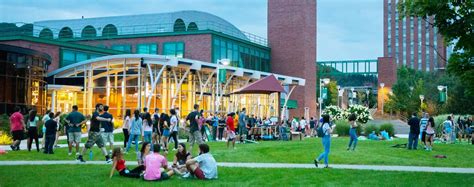Binghamton University, a public research university in Binghamton, New York, is a diverse and vibrant institution with a student population hailing from a wide range of backgrounds. Understanding the demographic makeup of the university is crucial for creating a welcoming and inclusive environment that fosters academic excellence and personal growth.

Student Enrollment
As of fall 2022, Binghamton University boasts an enrollment of over 17,000 students. The student body is predominantly undergraduate, with 13,203 undergraduates and 4,075 graduate students. The university’s excellent academic programs and research opportunities continue to attract a large number of talented students from around the globe.
Geographic Distribution
The geographic distribution of Binghamton University students reflects the university’s national reputation. In fall 2022, 63% of students were from New York State, while 37% came from out-of-state or international locations. The university has a strong presence in the Northeast, with a significant number of students from neighboring states such as New Jersey, Pennsylvania, and Connecticut.
Gender and Racial Diversity
Binghamton University is committed to promoting diversity and inclusion within its student body. In fall 2022, 52% of students were female and 48% were male. The racial and ethnic makeup of the student body is as follows:
| Category | Percentage |
|---|---|
| White | 47.8% |
| Asian | 18.6% |
| Hispanic | 14.1% |
| Black or African American | 6.6% |
| Two or more races | 4.7% |
| American Indian or Alaska Native | 0.3% |
| Native Hawaiian or Other Pacific Islander | 0.2% |
| Unknown | 7.7% |
International Student Population
Binghamton University is a welcoming and diverse institution that attracts a significant number of international students. In fall 2022, 14% of the student body was from outside the United States, representing over 90 countries. The university’s diverse international student population enriches the campus environment and fosters global perspectives.
Faculty and Staff Demographics
The university’s faculty and staff contribute to the diverse and vibrant campus community. As of fall 2022, 60% of faculty and staff were female and 40% were male. The racial and ethnic makeup of the faculty and staff is as follows:
| Category | Percentage |
|---|---|
| White | 72% |
| Asian | 12% |
| Hispanic | 6% |
| Black or African American | 4% |
| Two or more races | 4% |
| American Indian or Alaska Native | 1% |
| Native Hawaiian or Other Pacific Islander | 0.5% |
| Unknown | 0.5% |
Economic Diversity
Binghamton University is committed to ensuring that students from all socioeconomic backgrounds have access to a high-quality education. In fall 2022, 22% of undergraduates received Pell Grants, a federal grant awarded to students from low-income families. The university also offers a variety of financial aid programs, including scholarships, grants, and work-study programs, to support students in need.
LGBTQ+ Students
Binghamton University is a welcoming and inclusive environment for LGBTQ+ students. The university offers a variety of resources and support services to LGBTQ+ students, including the Pride Resource Center, which provides a safe and affirming space for students to connect with others and access information on LGBTQ+ resources.
Common Mistakes to Avoid
When discussing Binghamton University demographics, it is important to avoid perpetuating common stereotypes or making assumptions based on limited information. It is also important to recognize that the university’s demographic makeup is constantly evolving, and it is not possible to accurately capture the entire student body in a single snapshot.
How to Step-by-Step Approach
For those interested in learning more about Binghamton University demographics, the following resources are recommended:
- Binghamton University Factbook
- Binghamton University Office of Institutional Research and Assessment
- Binghamton University Diversity and Inclusion
FAQs
What is the size of Binghamton University’s student body?
As of fall 2022, Binghamton University has over 17,000 students.
What is the geographic distribution of Binghamton University students?
In fall 2022, 63% of students were from New York State, while 37% were from out-of-state or international locations.
What is the racial and ethnic makeup of Binghamton University’s student body?
In fall 2022, the racial and ethnic makeup of the student body was:
- 47.8% White
- 18.6% Asian
- 14.1% Hispanic
- 6.6% Black or African American
- 4.7% Two or more races
- 0.3% American Indian or Alaska Native
- 0.2% Native Hawaiian or Other Pacific Islander
- 7.7% Unknown
What is the percentage of international students at Binghamton University?
14% of Binghamton University’s student body was from outside the United States in fall 2022.
How does Binghamton University support diversity and inclusion?
Binghamton University is committed to diversity and inclusion through initiatives such as the Pride Resource Center, the Office of Diversity, Equity, and Inclusion, and a variety of faculty and staff training programs.
